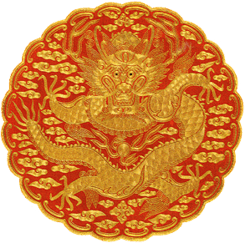Cheonmin
| Cheonmin | |
| Hangul | 천민 |
|---|---|
| Hanja | 賤民 |
| Revised Romanization | Cheonmin |
| McCune–Reischauer | Ch'ŏnmin |
Cheonmin, or "vulgar commoners," were the lowest caste of commoners in dynastical Korea. They abounded during the Goryeo (918–1392) and Joseon (1392–1897) periods of Korea's agrarian bureaucracy.
Social class system
Like the caste system in India, this social class was largely hereditary and based on certain professions considered "unclean" by the upper classes. This list of unclean professions included butchers, shamans, shoemakers, metalworkers, prostitutes, magicians, sorcerers, jail-keepers, and performers (like the kisaeng). Nobi (slaves), were servants taken from the cheonmin class to serve yangban (aristocracy) and royalty, but like slaves, they were considered the property of their owners and could be given away to other high-ranking people.
Kisaeng, female entertainers for yangban, were in this class, educated but not respected by others in society. The hereditary nature of the caste system bred institutionalized discrimination and prejudice early on in Korea's history, as the cheonmin were barred from most forms of social advancement, including entry into government service or taking the gwageo civil service examinations.
The cheonmin, although a step above the traditional caste of untouchables or outcasts called the Baekjeong, lived segregated lives, like the baekjeong, isolated from the rest of society and shunted away in ghettoes far away from the rest of society. While the cheonmin performed tasks that other Koreans considered unclean or undignified, they still had an essential function and role within dynastical Korean society. Their work as butchers, shoemakers, low-class entertainers, performing unclean jobs, provided services to the other classes that were unavailable from anyone else.
Legacy
While the class and caste system of dynastical Korea no longer exists and has largely disappeared in the modern era, remnants of such social discrimination based solely on one's occupation or a forebearer's previous line of work continue to shape traditional Korean thinking and values today.
Exception
In all the Joseon Dynasty history there is just one extraordinary case of a cheonmin who overcame her class status to gain the highest rank, just under the Queen, and became a Royal concubine. She was Choi Suk Bin, mother of King Yeongjo, who originally entered the Palace as a musori or slave-girl. Due to his mother's low origins, Yeongjo suffered multiple attempts to his life when he was named Crown prince over his half brother. Although he was adopted by Queen Inwon and under her protection, many nobles were against a low-born son ruling the country as king.
See also
- List of Korea-related topics
- Korean culture
- Untouchable (social system)
- Yangban
- Chungin
- Sangmin
- Nobi
- Baekjeong
- Burakumin — the Japanese equivalent to cheonmin
